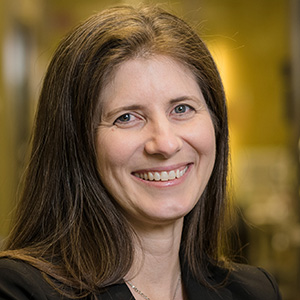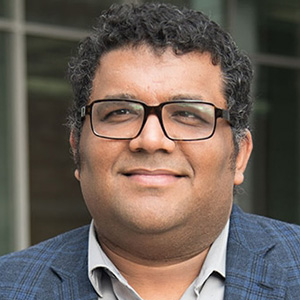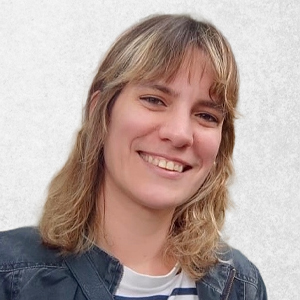Engineering the future with synthetic biology
Researchers have long worked to decipher the complexity of biological organisms and processes, like decoding a language or reverse-engineering a sophisticated system.

While some scientists focus on understanding the fundamental mechanisms of biology, others apply this knowledge to address human needs and challenges in medicine, agriculture, manufacturing and the environment by designing novel biological components and systems that do not exist in nature. Learn more about this innovative field at the American Society for Biochemistry and Molecular Biology Annual Meeting’s symposium on synthetic biology.
The symposium was organized by Danielle Tullman–Ercek, a professor of chemical and biological engineering at Northwestern University, and Vatsan Raman, an assistant professor of biochemistry at the University of Wisconsin–Madison.

On Sunday, April 13, hear expert talks on using synthetic biology to address human challenges. Speakers will discuss cellular sensors that detect and respond to changes in gene activity as well as engineered genetic control systems that enable dynamic cellular reprogramming. This session will also explore phage-based approaches to eliminate or alter bacteria within complex microbial communities, such as the human gut.
On Monday, April 14, environmental health takes center stage. Talks will cover topics such as manipulating soil microbes to improve plant drought tolerance, engineering minimal synthetic cells containing only essential genes and designing bacterial microcompartments for applications in medicine, materials science and sustainable chemical production.
Finally, on Tuesday, April 15, a dedicated session on enabling technologies will highlight the tools and methodologies driving synthetic biology forward. Speakers will delve into high-throughput approaches for engineering bacteriophages, methods for measuring protein ensemble features to design conformation-shifting proteins and other cutting-edge innovations.
“We are on the cusp of a revolution in engineering biology that will transform biomanufacturing, agriculture, sustainability and medicine,” symposium co-organizer Tullman–Ercek said during a seminar at DePaul University. “The real challenge lies in balancing cost, risk and speed.”
Check out the full program schedule to get the most out of #ASBMB25.
Enjoy reading ASBMB Today?
Become a member to receive the print edition four times a year and the digital edition monthly.
Learn moreFeatured jobs
from the ASBMB career center
Get the latest from ASBMB Today
Enter your email address, and we’ll send you a weekly email with recent articles, interviews and more.
Latest in Careers
Careers highlights or most popular articles

Upcoming opportunities
ASBMB's PROLAB award helps graduate students and postdoctoral fellows spend up to six months in U.S. or Canadian labs.

From humble beginnings to unlocking lysosomal secrets
Monther Abu–Remaileh will receive the ASBMB’s 2026 Walter A. Shaw Young Investigator Award in Lipid Research at the ASBMB Annual Meeting, March 7-10 in Washington, D.C.

Chemistry meets biology to thwart parasites
Margaret Phillips will receive the Alice and C. C. Wang Award in Molecular Parasitology at the ASBMB Annual Meeting, March 7-10 in Washington, D.C.

Decoding how bacteria flip host’s molecular switches
Kim Orth will receive the Earl and Thressa Stadtman Distinguished Scientists Award at the ASBMB Annual Meeting, March 7–10, just outside of Washington, D.C.

Defining JNKs: Targets for drug discovery
Roger Davis will receive the Bert and Natalie Vallee Award in Biomedical Science at the ASBMB Annual Meeting, March 7–10, just outside of Washington, D.C.

Upcoming opportunities
No matter where you are in your career and what future path you aspire to, everyone needs leadership skills. Join ASBMB for practical strategies for building and practicing leadership skills.

